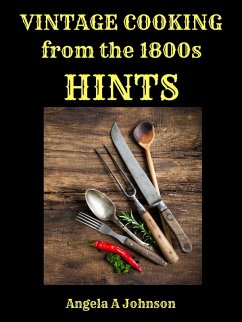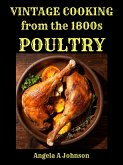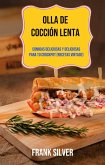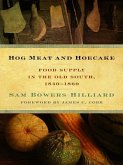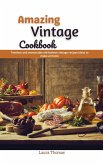People made do with what they had, substituted ingredients, or did without. There were no quick trips to a grocery store.
Nothing was wasted - food was too valuable.
The information in this book was compiled from many cookbooks published in the 1800s. You may never use any of these hints, but they should help you appreciate what it was like to cook in olden times.
SOME HINTS:
~ To remove insects from vegetables which are being washed, put a pinch of borax in the water. It will bring any live insect to the surface at once.
~ Fresh eggs placed in cold water will immediately sink, while bad ones will float on top.
~ Try taking the beaten white of an egg when you have a sour stomach. It is very soothing to an irritated, sensitive stomach.
~ Iced tea requires only half as much sugar sweetened when hot than when cold.
~ Sweet potatoes and apples will not turn black if placed in salt water immediately after peeling.
~ To keep milk sweet, put a spoon of grated horse-radish into the pan. It will keep it sweet for days.
~ Meats, fish and poultry can be kept fresh in hot weather by being sprinkled with a little powdered charcoal. This washes away easily just before cooking.
~ Water from macaroni or rice after they have been cooked should be saved for soup and gravies.
~ To keep lemons, put them in water. Change once a week and they will keep a long time.
~ Meats, fish and poultry can be kept fresh in hot weather by being sprinkled with a little powdered charcoal. This washes away easily just before cooking.
~ To keep weevils out of wheat, put the wheat in barrels, smooth it, and sprinkle a layer of salt over the top. Keep the barrels well covered by tying cloths over them; a sure preventive.
Also included:
Vintage Cooking Terms and Definitions.
Sources - Cookbooks that were used to compile and create this book.
Dieser Download kann aus rechtlichen Gründen nur mit Rechnungsadresse in A, B, CY, CZ, D, DK, EW, E, FIN, F, GR, H, IRL, I, LT, L, LR, M, NL, PL, P, R, S, SLO, SK ausgeliefert werden.

